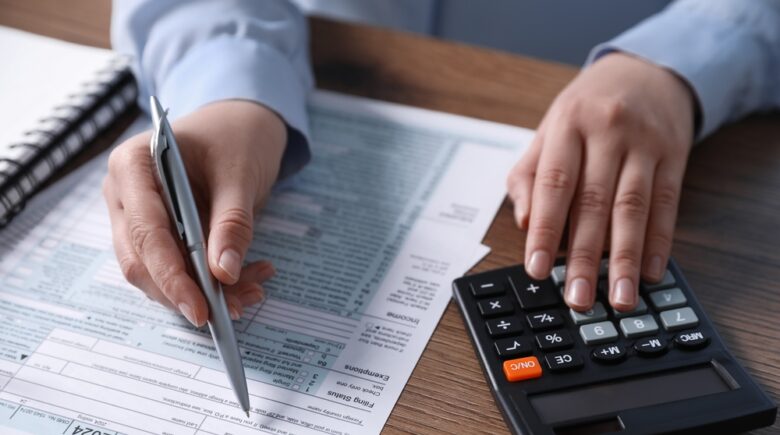Let’s face it—taxes aren’t exactly the most exciting topic. But understanding the importance of keeping proper tax records can save you time, money, and a whole lot of stress. It can also help you avoid making some costly mistakes.
What Counts as a Tax Record?
Good tax records include any document that relates to your income or expenses. This covers a wide range of items, such as:
- Pay stubs
- W-2s and 1099s (especially important if you’re a freelancer or independent contractor)
- Receipts for business expenses
- Invoices, canceled checks, and bank statements
- Records of charitable donations
If it involves money coming in or going out—especially for work or business—it’s worth holding onto.
Why These Records Matter
Accurate tax records are essential for correctly filing your tax return. The IRS expects you to report all income and eligible expenses, and without proper documentation, it’s easy to make mistakes. Errors on your return can lead to penalties, interest charges, or worse—an audit.
Staying organized makes tax time much easier. Imagine trying to remember how much you spent on business supplies last year without any receipts. That’s not only frustrating, but it could also cost you money if you miss deductions you’re entitled to.
In Case of an Audit
If the IRS decides to audit you, having solid records can protect you. During an audit, the IRS reviews your tax return to ensure it’s accurate. If you can’t back up your claims with documentation, you could lose out on deductions or credits—meaning you’ll owe more in taxes. On top of that, penalties and interest may apply. In some cases, the IRS can even garnish your wages.
Things can get much worse if the IRS suspects intentional wrongdoing, such as fraud or tax evasion. These are serious offenses that can lead to large fines and even prison time. Without good records, you’re at a serious disadvantage.
Good Records Can Save You Money
Keeping tax records isn’t just about staying out of trouble—it can actually help you save money. Many tax deductions and credits require documentation. For example, if you’re self-employed, you can deduct business expenses like office supplies, travel, and even part of your home if it’s used for work. But you need receipts and invoices to claim those deductions. The same goes for charitable donations—you need proof to deduct them.
Financial Clarity All Year Long
Good record keeping also helps you manage your finances more effectively. Tracking your income and expenses gives you a clearer picture of where your money goes. This is especially valuable for small business owners who need to monitor profits and spending. But even if you’re not running a business, organized financial records can help you build a budget, save for major goals, and identify areas where you can cut back.
How to Keep Tax Records
There’s no one-size-fits-all method—just find a system that works for you. Options include:
- Physical Filing: Store receipts and documents in labeled folders or binders, sorted by category or date.
- Digital Filing: Scan and save records on your computer or cloud storage. Many apps and tools can help with this and even link to your bank accounts to track transactions automatically.
Whichever method you choose, consistency is key. Get into the habit of organizing documents as soon as you receive them—don’t wait until tax season to scramble through drawers and inboxes.
How Long Should You Keep Records?
The IRS recommends holding on to tax records for at least three years from the date you filed, or two years from the date you paid the tax—whichever is later. In some cases, such as if you’re self-employed, it’s best to keep them for six years or more. When in doubt, consult a tax professional.
The Bottom Line
Keeping good tax records might not be glamorous, but it can make a huge difference. It protects you from audits, helps you claim valuable deductions, and gives you better control over your money. So next time you’re tempted to toss that receipt—don’t! Start organizing your tax records today, and make tax season a whole lot smoother.
Let’s face it—taxes aren’t exactly the most exciting topic. But understanding the importance of keeping proper tax records can save you time, money, and a whole lot of stress. It can also help you avoid making some costly mistakes.
What Counts as a Tax Record?
Good tax records include any document that relates to your income or expenses. This covers a wide range of items, such as:
- Pay stubs
- W-2s and 1099s (especially important if you’re a freelancer or independent contractor)
- Receipts for business expenses
- Invoices, canceled checks, and bank statements
- Records of charitable donations
If it involves money coming in or going out—especially for work or business—it’s worth holding onto.
Why These Records Matter
Accurate tax records are essential for correctly filing your tax return. The IRS expects you to report all income and eligible expenses, and without proper documentation, it’s easy to make mistakes. Errors on your return can lead to penalties, interest charges, or worse—an audit.
Staying organized makes tax time much easier. Imagine trying to remember how much you spent on business supplies last year without any receipts. That’s not only frustrating, but it could also cost you money if you miss deductions you’re entitled to.
In Case of an Audit
If the IRS decides to audit you, having solid records can protect you. During an audit, the IRS reviews your tax return to ensure it’s accurate. If you can’t back up your claims with documentation, you could lose out on deductions or credits—meaning you’ll owe more in taxes. On top of that, penalties and interest may apply. In some cases, the IRS can even garnish your wages.
Things can get much worse if the IRS suspects intentional wrongdoing, such as fraud or tax evasion. These are serious offenses that can lead to large fines and even prison time. Without good records, you’re at a serious disadvantage.
Good Records Can Save You Money
Keeping tax records isn’t just about staying out of trouble—it can actually help you save money. Many tax deductions and credits require documentation. For example, if you’re self-employed, you can deduct business expenses like office supplies, travel, and even part of your home if it’s used for work. But you need receipts and invoices to claim those deductions. The same goes for charitable donations—you need proof to deduct them.
Financial Clarity All Year Long
Good record keeping also helps you manage your finances more effectively. Tracking your income and expenses gives you a clearer picture of where your money goes. This is especially valuable for small business owners who need to monitor profits and spending. But even if you’re not running a business, organized financial records can help you build a budget, save for major goals, and identify areas where you can cut back.
How to Keep Tax Records
There’s no one-size-fits-all method—just find a system that works for you. Options include:
- Physical Filing: Store receipts and documents in labeled folders or binders, sorted by category or date.
- Digital Filing: Scan and save records on your computer or cloud storage. Many apps and tools can help with this and even link to your bank accounts to track transactions automatically.
Whichever method you choose, consistency is key. Get into the habit of organizing documents as soon as you receive them—don’t wait until tax season to scramble through drawers and inboxes.
How Long Should You Keep Records?
The IRS recommends holding on to tax records for at least three years from the date you filed, or two years from the date you paid the tax—whichever is later. In some cases, such as if you’re self-employed, it’s best to keep them for six years or more. When in doubt, consult a tax professional.
The Bottom Line
Keeping good tax records might not be glamorous, but it can make a huge difference. It protects you from audits, helps you claim valuable deductions, and gives you better control over your money. So next time you’re tempted to toss that receipt—don’t! Start organizing your tax records today, and make tax season a whole lot smoother.



